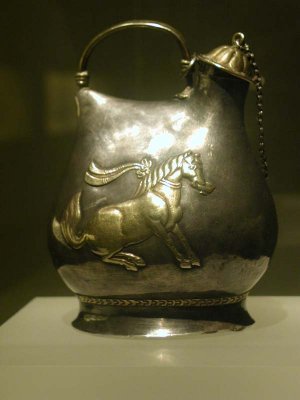Tang Dynasty Economy
 The Tang Dynasty economy played an important role in China’s early economic development. With the aid of multiple government programs, agriculture and commerce experienced an improvement in both food production and the wealth of the population.
The Tang Dynasty economy played an important role in China’s early economic development. With the aid of multiple government programs, agriculture and commerce experienced an improvement in both food production and the wealth of the population.
Early Economy
During the rule of Emperor Gaosu, one of the first leaders of the Tang Dynasty, agriculture decreased significantly. He was the one to implement the first reforms that would evenly distribute land and help optimize production and improve efficiency. This was also a direct consequence of the use of new tools and methods to farm the land. However, the biggest contribution to production increase came from irrigation.
Governmental Reforms
With the even distribution of land and decreased food scarcity, the government focused on saving money and food by creating a surplus. To achieve this, the governmental staff was reduced across all regions. This led to a surplus of food and revenue. At the same time, having a prosperous population also improved tax collection as more people were able to afford to pay their debt to the emperor.
Trade and Commerce
The Tang Dynasty greatly supported commerce. Trade routes were established internally and with neighboring countries like India. Goods like jade, silk, porcelain, tea and spices were being sold to provinces and foreigners. This increased the population’s wealth which was now able to pay its taxes.
All of this income helped the government keep the costs of war under control. Even if the Tang Dynasty waged wars and expanded its borders close to the Persian borders, the prosperity of the Chinese people was not affected.
Decline of the Economy
Towards the end of the Tang Dynasty, the government’s efforts to eliminate Buddhism affected the economy. This created conflicts between the Chinese and foreign traders. Also, a sudden change in attitude towards outsiders decreased exports. After hundreds of years of trading with foreigners, the borders were closed and outsiders were no longer welcome.
